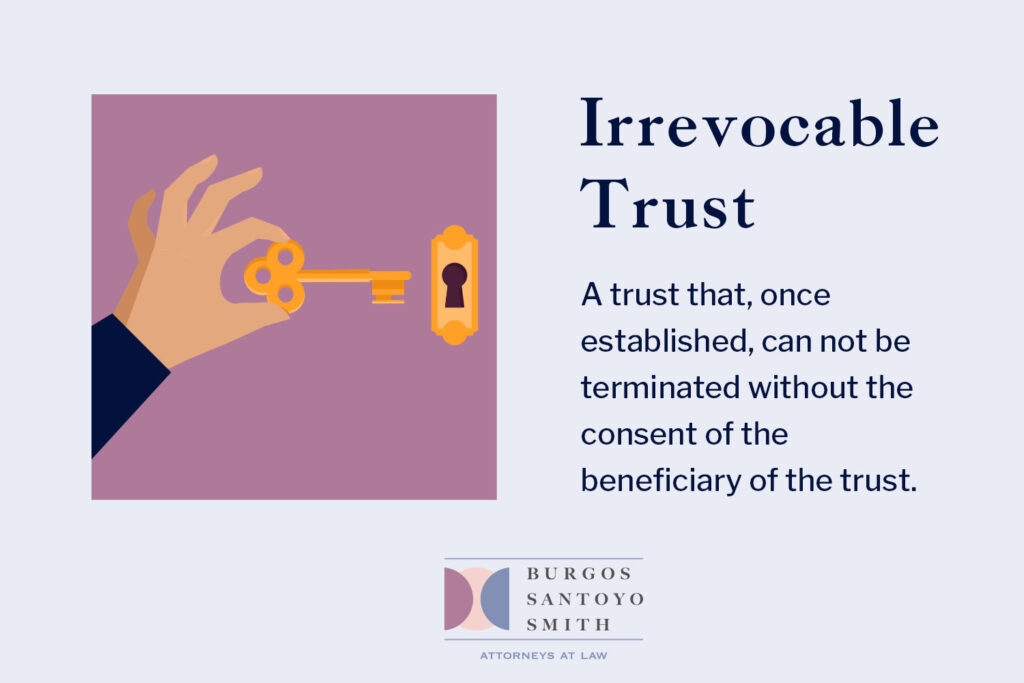When preparing an effective estate plan, there are different trust options to choose from. One option that may be beneficial is an irrevocable trust. Irrevocable trusts have an element of asset protection that restricts creditors and those seeking judgments against you. Creditors can not reach property contained in the title of an irrevocable trust. In contrast, a revocable trust does not have the same protection because for a revocable trust. It can be modified and revoked at any time the settlor (the party creating the trust) is alive. Property held in a revocable trust is subject to collections, lawsuits, and creditors.

Advantages of an Irrevocable Trust
The advantage of using an irrevocable trust is that creditors cannot go after the settlor’s property to collect debts. This is because the settlor has relinquished ownership to the trust, a legal entity and owner of the property. It may also not be subject to estate tax, reduces the settlor’s income tax burden (income from the trust is treated as income to a separate entity), and avoids being tied up in probate court.
Irrevocable trusts entail a sense of finality engrained in the name of the trust as “irrevocable.” A drawback of an irrevocable trust is that once a property is in a trust, that trust is now the legal owner of the property. The property will be distributed by the terms of the trust that the settlor dictates. However, once an irrevocable trust is made and property is funded into the trust, it is essentially locked in the trust, hence irrevocable, but there are rare occurrences that can reverse the process. This means committing to an irrevocable trust should be done with absolute certainty and confidence.
An estate planning attorney can discuss the best option for you and your long-term plans. We would love to set up a consultation and answer any questions you have.

